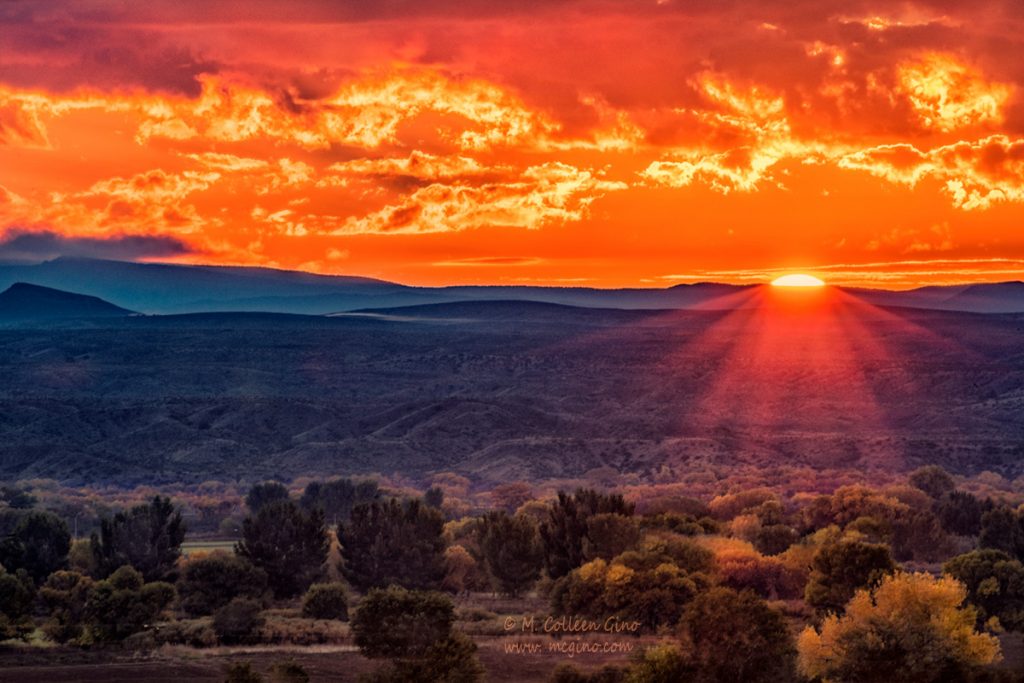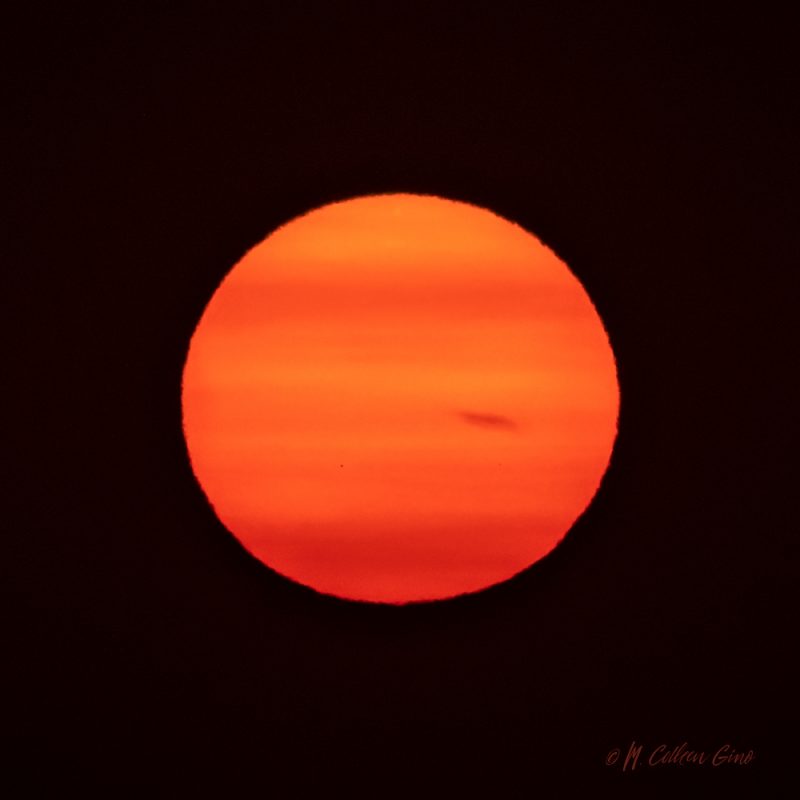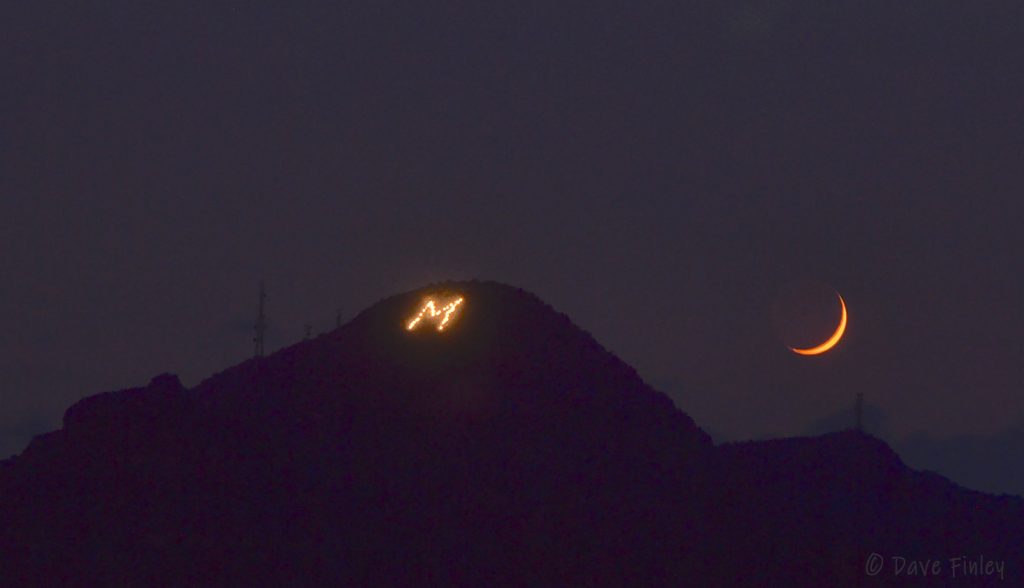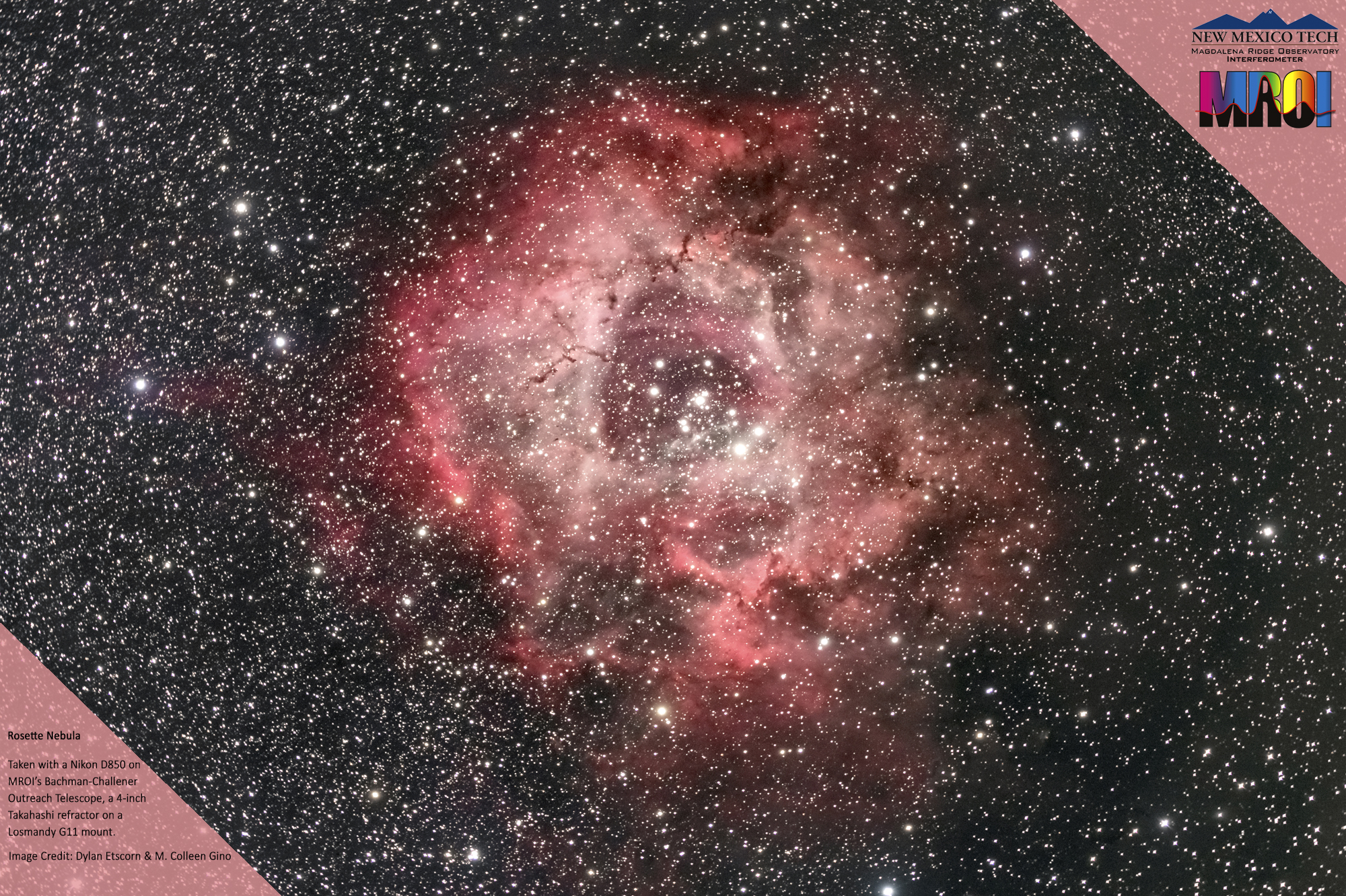By Shelbi Etscorn
In my last article, I talked about the green flash that can be seen at the moment when the sun is below the horizon. To recap, this green flash happens because of the way light is refracted in the atmosphere. When the sun is just below the horizon all colors that have longer wavelengths (like the reds and oranges) are out of our line of sight below the horizon. All colors with shorter wavelengths (like the blues and violets) are dispersed into the atmosphere above the horizon where we aren’t able to see them. But the green is just right for us to be able to see a momentary flash.
In this last week (and just about every summer in New Mexico), you may have noticed a different phenomenon that can be explained with the same science behind the green flash. With smoke in our skies from wildfires in surrounding states, sunrises and sunsets have suddenly become even more beautiful than usual in our New Mexico skies. But why does smoke, which we usually think of as an ugly, hazy blob, help create such beautiful skies every dawn and twilight?

I’ve already given you a hint. As you may recall, the white light from our sun is actually made up of all the colors of the rainbow. A rainbow is simply the light from our sun being “bent” or refracted by water droplets in the air, causing the different wavelengths of light to separate to the point that each individual color is distinguishable.
Going through the colors of the rainbow in order (remember ROY G. BIV?), the colors found at the beginning have the longest wavelengths, while the ones at the end have the shortest. The colors with the shortest wavelengths can more easily interact with particles in our atmosphere and are scattered by them, while the longer wavelengths aren’t very much affected. This is why sunrises and sunsets already appear to be red, orange, and yellow. These are the colors that have the easiest time making it through our atmosphere to arrive at our eyes, although some of the shorter wavelength colors still make it through as well.

When wildfires fill our atmosphere with an abundance of minuscule particles, the effect our atmosphere already has on sunlight becomes amplified. Even more of the blues and violets are scattered out of the light that we eventually see, making the reds and oranges of that light appear even more vibrant and intense and causing beautiful, deep colors to appear in the sky.

While we can be thankful for the beautiful display, smoke in the air from wildfires does cause issues with astronomical observatories, and, much more importantly, is a sign that somewhere homes and lives could be at risk. While they’re here, I get up early in the morning to enjoy the stunning colors that paint the sky, but I look forward to the day our sunsets go back to their previous brilliance, which has always been rich and vivid enough for me.
